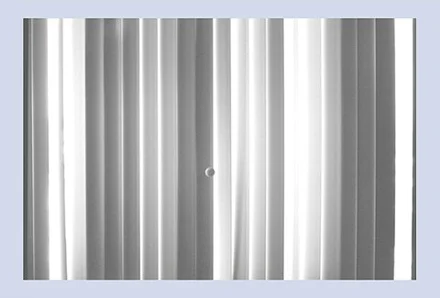John Ashbery has a bad reputation for being a difficult poet. It’s a bad reputation because it’s not an accurate one, and because, anyway, there’s nothing wrong with being a bit difficult. If you have your doubts, there’s a great old interview between Ashbery and Peter Stitt (don’t worry, I have no idea who he is either) in The Paris Review that will dispel them. And give you a pliant lever to press against Ashbery’s newest collection, Quick Question, out next week.
For one thing, the straightforward way Ashbery talks about writing — “Meaning yes, but message no … there is no message, nothing I want to tell the world particularly except what I am thinking when I am writing.” — may get you to stop thinking that understanding his poetry is like opening a locked door to see what’s inside. There is no secret message: just words.
Also, there are the curios you can pluck from the biography the interview contains. Ashbery’s anecdote about being in Poland for a writer’s conference came to mind as I read through Quick Question. While at the conference, he and Susan Sontag were both supposed to go to a ballet in the city, but Ashbery was afraid it wouldn’t be too interesting. He told Sontag as much, and she responded, “We should go. If it is boring that will be interesting too.”
This sentiment of Sontag’s found its way into Quick Question in the poem “The Short Answer.” Let's leave aside the exegetical thrills of riffing on a title like “The Short Answer” in a collection called Quick Question — wanking is best done in private — and just look at these lines:
How was your trip? Oh I didn’t last
you see, folded over like the margin
of a dream of the thing-in-itself. Well, and
what have we come to? A paper-thin past,
just so, and ’tis pity. We regurgitate
old anthems and what has come to pass, and why
dwell on these. Why make things more difficult
than they already are? Because if it’s boring
in a different way, that’ll be interesting too.
That’s what I say.
We could tumble these lines around in our head, and add the fact that we know Ashbery inserted a sentiment of Sontag’s there at the end of them, and then draw out different significant pulls (Kant, the fact this seems to be a conversation, the weight of age, the inertia of history, ineffectuality, etc.), and come up with some theory about this being a vindication of a certain sort of resigned conservatism. The turning point of our argument would be what we’d call the “stunning reversal” in the lines “We regurgitate / old anthems and what has come to pass, and why / dwell on these”: with the addition of “dwell on these,” Ashbery moves from explaining the movement of history to the ludicrousness of dwelling on it at all. With or without your preoccupation, things turn out.
Or, we could not. What matters is remembering there’s no skeleton key here. The poem’s not a lockbox, just some words, and it doesn’t open up to reveal the mysteries of the universe. Better to think of it as a collection of sensations that might coalesce around a given thought or impulse. Sort of like the way the nose of a wine or a beer — Ashbery is most definitely a wine, an old, stodgy, expensive, French red — is made up of a bunch of isolable elements but gives one overall impression.
We can savor how the lines above do have whiffs of resignation — which is what it is — but they’re followed by a stanza break, then this:
That rascal, he jumped over the fence.
I’m wiping my pince-nez now.
Which changes things. Farcical notes brighten the somber contemplation of history (what sort of person says “rascal,” after all, but a buffoon wearing antiquated eyewear?) and finally, we arrive at our most serious concern: how to pronounce pince-nez? Like the naying French, or with a pleasant, unschooled nezziness?





 A Black Balloon Publication ©
A Black Balloon Publication ©